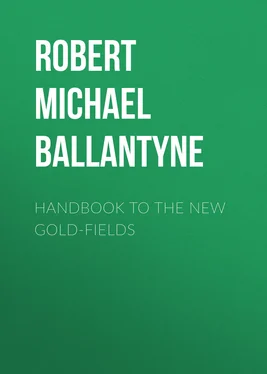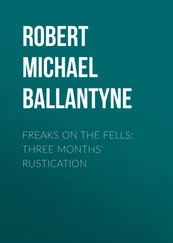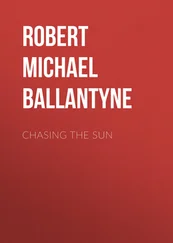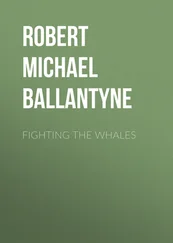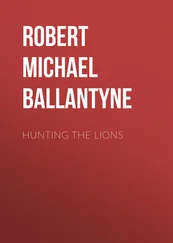Robert Michael Ballantyne - Handbook to the new Gold-fields
Здесь есть возможность читать онлайн «Robert Michael Ballantyne - Handbook to the new Gold-fields» — ознакомительный отрывок электронной книги совершенно бесплатно, а после прочтения отрывка купить полную версию. В некоторых случаях можно слушать аудио, скачать через торрент в формате fb2 и присутствует краткое содержание. Жанр: foreign_desc, Технические науки, на английском языке. Описание произведения, (предисловие) а так же отзывы посетителей доступны на портале библиотеки ЛибКат.
- Название:Handbook to the new Gold-fields
- Автор:
- Жанр:
- Год:неизвестен
- ISBN:нет данных
- Рейтинг книги:5 / 5. Голосов: 1
-
Избранное:Добавить в избранное
- Отзывы:
-
Ваша оценка:
- 100
- 1
- 2
- 3
- 4
- 5
Handbook to the new Gold-fields: краткое содержание, описание и аннотация
Предлагаем к чтению аннотацию, описание, краткое содержание или предисловие (зависит от того, что написал сам автор книги «Handbook to the new Gold-fields»). Если вы не нашли необходимую информацию о книге — напишите в комментариях, мы постараемся отыскать её.
Handbook to the new Gold-fields — читать онлайн ознакомительный отрывок
Ниже представлен текст книги, разбитый по страницам. Система сохранения места последней прочитанной страницы, позволяет с удобством читать онлайн бесплатно книгу «Handbook to the new Gold-fields», без необходимости каждый раз заново искать на чём Вы остановились. Поставьте закладку, и сможете в любой момент перейти на страницу, на которой закончили чтение.
Интервал:
Закладка:
In explanation and refutation of the prejudice which almost universally exists against the climate and soil of North America generally, but especially of the divisions included in the Hudson’s Bay Company’s Territories, we cannot do better than quote the following just remarks from the Reverend Mr Nicolay’s treatise on Oregon. He says:—
“A predisposition towards one opinion, or bias to one side of an argument, too often warps both the judgment and the understanding; and one man in consequence sees fertile plains where another could see only arid wastes on which even the lizards appear starving, while the other looks forward to their being covered with countless flocks and herds at no very distant period of time. Both Cook and Vancouver, having previously made up their minds against the existence of a river near parallel 46 degrees, passed the Columbia without perceiving it, and the former even declared most decidedly that the strait seen by Juan de Fuca had its origin only in the fertility of the pilot’s brain. As they were discovered to be in error, so it is not impossible that others not less positive in their assertions may be convicted of the same carelessness of examination as those navigators, so remarkable in all other respects for their accuracy, and so indefatigable and minute in their researches, that little has been left to their successors but to check their work.
“With respect, however, to the attributed barrenness of great part of the territory, so peremptorily insisted on by many, there is some excuse for the earlier travellers from whom that opinion is derived. Ignorant of the best routes, and frequently famishing in the immediate neighbourhood of plenty, they most justly reflect back to others the impressions they received; but in so doing, though they speak truth, they give very erroneous ideas of the country they think themselves to be describing most accurately, and of this very pregnant examples are found in the travels of Lewis and Clarke, and the party who came overland to Astoria: both struck the head waters of the Saptin, both continued its course to its junction with the main stream, both suffered—the latter party intensely; but had they, by the fertile bottoms of Bear and Rosseaux Rivers, found access to the valley between the Cascade and Blue Mountains—or, keeping still further west, crossed the former range into that of the Wallamette, they would have found game, been banished from their pages, and the Oregon would have appeared in her holiday attire—
“A nymph of healthiest hue—”
and the depth of ravines and the elevation of rocks and precipices would have been changed into the unerring evidences of fertility and luxuriance of vegetation afforded by the dense forests and gigantic pine-trees of the coast district. We can scarce estimate the transition of feeling and change which would have been produced in their estimate of the country, if they could have been suddenly transported from their meagre horse-steak—cut from an animal so jaded with travel as to be in all probability only saved from death by starvation and fatigue, by being put to death to save over-wearied men from famine, and this cooked at a fire of bois de vache , with only the shelter of an overhanging rock—to the fat venison and savoury wildfowl of the woods and lakes, broiled on the glowing hardwood embers under the comfortable roof of sheltering bark, or the leafy shade of the monarch of the forest; while the cheerful whinny of their well-fed beasts would have given joyful token that nature in her bounty had been forgetful of nothing which her dependent children could desire.
“While such and so great is the power of circumstances to vary the impressions made upon the senses, some hesitation must be used in their reception until fully confirmed, or they must be limited by other accounts, as unbiassed judgment may direct, especially as the temperament of individuals may serve to heighten the colouring, whether sombre or sunny, in which circumstances may have depicted the landscape. It is not every traveller who can, with Mackenzie, expatiate on the beauty of scenery while in fear of treachery from fickle and bloody savages; or like Fremont, though dripping from the recent flood, and uncertain of the means of existence even for the day, his arms, clothes, provisions, instruments, deep in the whirlpools of the foaming Platte, stop to gaze with admiration on the ‘fantastic ruins’ Nature has ‘piled’ among her mountain fastnesses, while from his bare and bleeding feet he draws the sharp spines of the hostile cacti. Truth from travellers is consequently for the most part relative. Abstractedly, with reference to any country, it must be derived from the combined accounts and different phases of truth afforded by many.”
Chapter One
Richness and Extent of the Gold Fields
“Destiny, which has lately riveted our attention on the burning plains of the extreme East,” says the Times of 9th July, “now claims our solicitude for the auriferous mountains and rushing rivers of the Far West and the shores of the remote Pacific. What most of us know of these ultra-occidental regions may be summed up in a very few words. We have most of us read Washington Irving’s charming narrative of ‘Astoria,’ sympathised with the untimely fate of Captain Thorn and his crew, and read with breathless interest the wanderings of the pilgrims to the head waters of the Columbia. After thirty years, the curtain rises again on the stormy period of the Ashburton Treaty, when the ‘patriots’ were bent upon ‘whipping the Britishers’ out of every acre of land on the western side of the Rocky Mountains. And now, for the third time, we are recalled to the same territory, no longer as the goal of the adventurous trader or the battle ground of the political agitator, but as a land of promise—a new El Dorado, to which men are rushing with all the avidity that the presence of the one, thing which all men, in all times and in all places, insatiably desire is sure to create.”
This El Dorado lies between the Rocky Mountains and the Pacific; it is bounded on the south by the American frontier line, 49 degrees of latitude, and may be considered to extend to the sources of Fraser River, in latitude 55 degrees. It is, therefore, about 420 miles long in a straight line, its average breadth from 250 to 300 miles. Taken from corner to corner, its greatest length would be, however, 805 miles,—and its greatest breadth 400 miles, Mr Arrowsmith computes its area of square miles, including Queen Charlotte’s Island, at somewhat more than 200,000 miles. Of its two gold-bearing rivers, one, the Fraser, rises in the northern boundary, and flowing south, falls into the sea at the south-western extremity of the territory, opposite the southern end of Vancouver’s Island, and within a few miles of the American boundary; the other, the Thompson River, which rises in the Rocky Mountains, and flowing westward, joins the Fraser about 150 miles from the coast. It is on these two rivers, and chiefly at their confluence, that the gold discoveries have been made.
Читать дальшеИнтервал:
Закладка:
Похожие книги на «Handbook to the new Gold-fields»
Представляем Вашему вниманию похожие книги на «Handbook to the new Gold-fields» списком для выбора. Мы отобрали схожую по названию и смыслу литературу в надежде предоставить читателям больше вариантов отыскать новые, интересные, ещё непрочитанные произведения.
Обсуждение, отзывы о книге «Handbook to the new Gold-fields» и просто собственные мнения читателей. Оставьте ваши комментарии, напишите, что Вы думаете о произведении, его смысле или главных героях. Укажите что конкретно понравилось, а что нет, и почему Вы так считаете.
